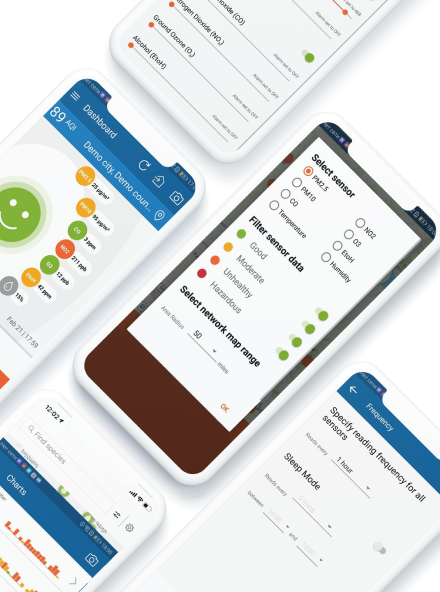
5 Insurance Tech Trends That Will Drive Your Digital Transformation
27 Oct 2020

Insurance companies are faced with the struggle of differentiating themselves and providing their customers with the value and experience they are looking for. At this point, many of them compete based on the price alone and are slow and reluctant to take steps to embrace true innovation and stand out from their competitors.
However, as more and more companies are realizing the need for digital transformation and the advantages that come with it, they are becoming increasingly willing to fuel their businesses with new technology. Here are some of the most prevalent tech trends disrupting the insurance industry.
1. Legacy Software Modernization
Before we even touch on the up and coming tech solutions in the insurance business, it’s important to mention that too many companies in this industry are still using legacy software. This is not surprising, considering it’s one of the most risk-averse industries out there.
Many insurance providers are reluctant to let go of the legacy systems they have had to rely on for so many years. After all, they had required a considerable amount of investment in their time and seem to do the job just fine. Or do they? It’s no wonder than that 68% of insurance companies see legacy systems as the biggest obstacle to digital transformation.
The reality is that the drawbacks of these solutions have come to far outweigh their advantages. They require a great deal of manual data entry, which results in discrepancies and inaccuracies in data sharing, not to mention the vast quantities of paper that is prevalent in internal processes. Moreover, taking into account the fact that most of these systems were developed in the 80s and 90s, the pool of experts versed in these outdated tech stacks is shrinking. And this is just the tip of the iceberg. Most importantly, insurers are now having to deal with the reality that customers expect more.
Insurance companies are coming to the realization that if they fail to revive their antiquated systems in time, they stand the risk of being replaced by more nimble and innovative newcomers in the field. Even the most conservative players are realizing that the benefits of software modernization speak for themselves.
Reduced operational cost – Your upgraded software will pay for itself, given that it will close to eliminate manual errors and increase throughput.
Improved efficiency – Better software means being able to handle greater workloads and serving more clients without having to hire additional employees.
Adoption of modern business practices – Human capital is a rather big pain point for insurance companies, as fresh graduates express little enthusiasm to join the industry, opting instead to go into more modern and exciting fields. Newer tech will help you embrace more modern business approaches and help attract young talent.
2. Cloud Computing
Cloud is one of the technologies helping to transform the insurance industry and its legacy roots, and here is why:
- Cost-Effectiveness – Many insurance companies store their data on-premises, which results in a significant cost in terms of maintaining local servers. Reallocating this load to dedicated data centers helps save time and money.
- Easier IT Management – Taking your business to the cloud means not having to maintain your own team of IT professionals.
- Scalability – Dedicated data center providers can easily increase or decrease your server capacity according to your needs, which makes for effortless scaling.
- Remote Management – Having cloud-based software means being able to access and manage it from anywhere. This includes having the option of outsourcing development to remote teams, which results in significant cost savings.
3. Mobile Apps
Mobile device usage has come to surpass PC usage in the recent years, which means that customers are more likely to engage with your company if you offer them the opportunity to do so through a mobile app rather than making them look up information on their computers. The average customer is no longer willing to sit down at a desk to perform simple insurance-related operations like selecting insurance packages, making payments, looking up company information, getting quotes, or getting in touch with their insurance agents. Having a state of the art mobile app will increase the number of touchpoints with your current and potential customers and, in turn, boost customer loyalty.
4. AI & Predictive Analytics
Granted, we all, to some extent, panic at the mention of “robots” taking over our jobs. Yet, Artificial Intelligence (AI) and predictive analytics are becoming more and more in-demand tools when it comes to making insurance processes more efficient. Specialized industry functions and processes like fraud and anomaly detection, pricing, underwriting, and claims processing are becoming increasingly automated, cutting out the human element and resulting in more accurate reporting in shorter amounts of time.
Of course, AI is not yet fully autonomous and requires a human touch, but companies that fail to adopt the technology now will find themselves playing catch-up when the more mature versions of the technology become mainstream.
5. Using Big Data for Personalized Experiences
The modern customer is sophisticated and wants to feel that an offer was created to match them specifically, and insurance companies are starting to jump on the bandwagon of delivering personalized experiences. When it comes to the insurance industry, the spectrum of customer needs is so wide and varies so much, that it only makes sense to get rid of the standard one-size-fits-all customer portfolio and use data to uncover key insights about your users.
For instance, emerging technologies like the Internet of Things (IoT) allow insurance companies to provide individual, behavior-based pricing to their customers based on their own data, instead of lumping them together and assigning them to particular groups. Instead, the company gains vital access to the individual customer by tracking the activity of their wearables, which show and record health and lifestyle information, check whether patients follow their doctors’ recommendations, and even provide support for health-related diagnosis.
Being able to offer personalized solutions is a definite competitive advantage, especially in an industry that’s infamous for its conservatism.
Final Words
At Volo, we’re proud to power industry frontrunners with the latest tech and cost-efficient software development services. Download our case study to learn more about the insurtech solutions we’ve provided to our partners in the industry or contact us for a free initial consultation on how to get your digital transformation rolling.




